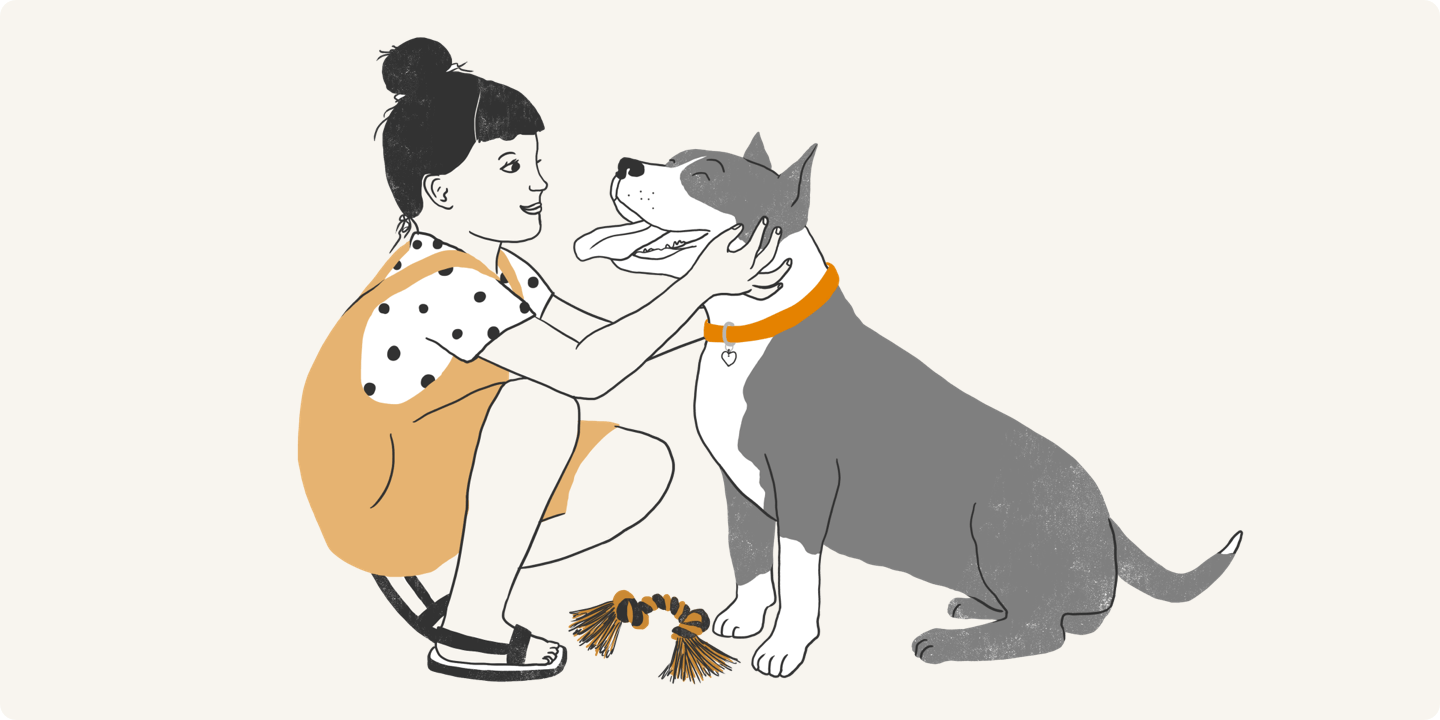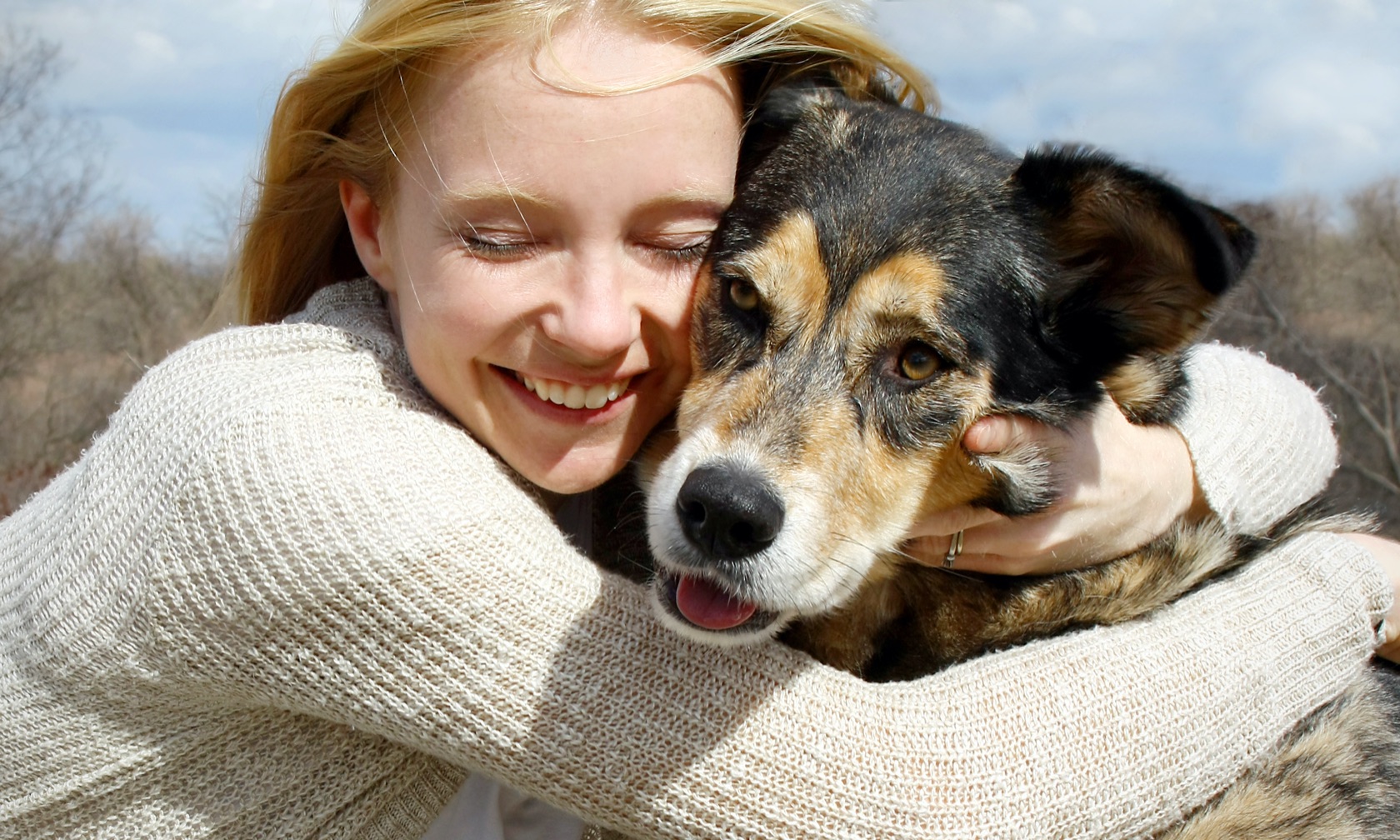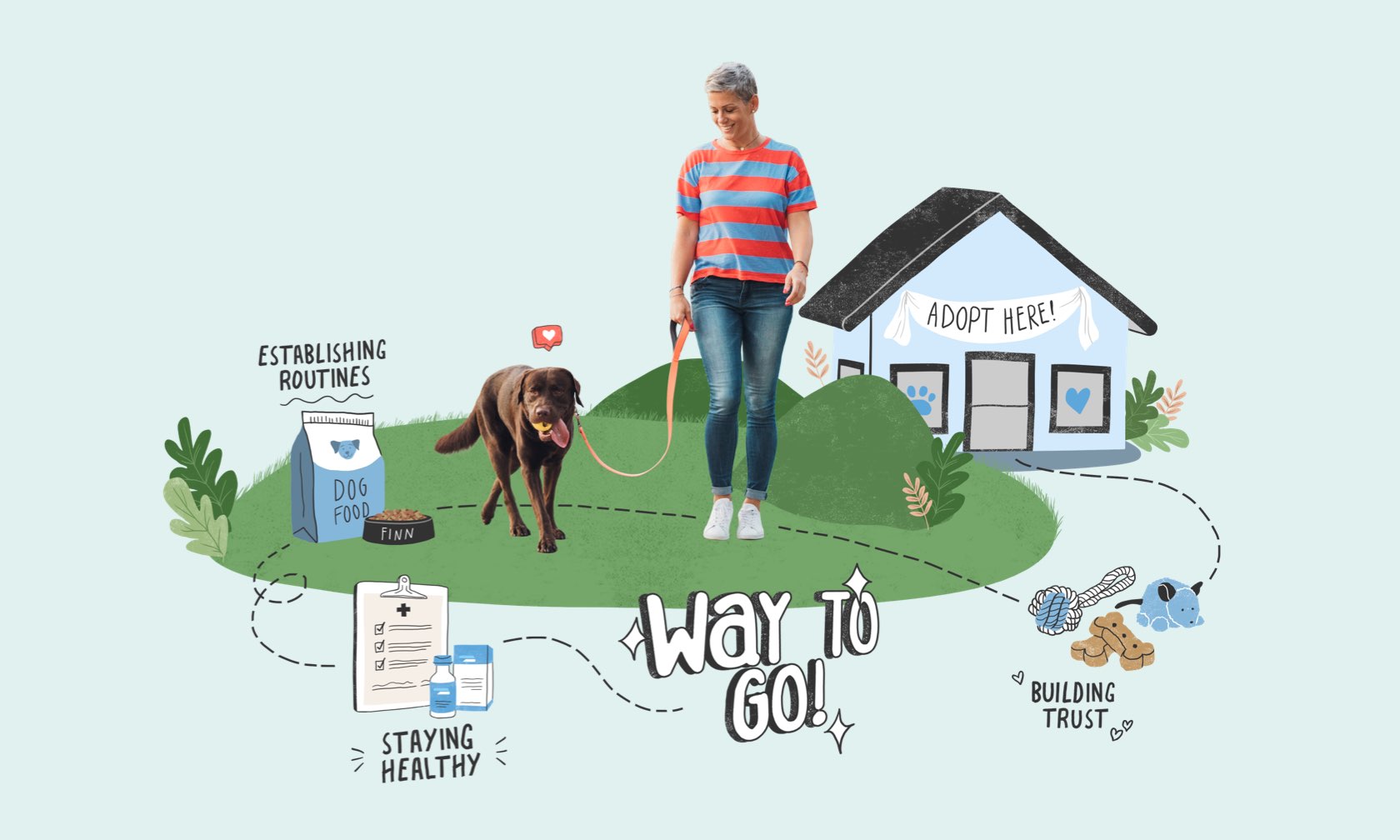Are you thinking of adopting a new cat or dog? If you’re looking to improve your health or lead a healthy lifestyle, adopting a cat or dog can be a great thing to consider. There are so many benefits of adopting a cat or dog that can positively impact your physical and mental health. Not only will you reap those benefits of adopting a new pet, but you’ll also be providing a loving home to a dog or cat in need and receive their lifelong love and companionship in return.
Physical Health Benefits of Adopting a Pet
Not surprisingly, there are many health benefits of adopting a dog or cat. In fact, pet ownership is so good for our health that research shows us that many health issues are positively affected by owning a dog or cat.
Lower Blood Pressure
Life is stressful, which can lead to high blood pressure. Having a pet may help promote lower blood pressure! People who have pets may have lower blood pressure than those without pets in their homes. The increased social support through pet ownership lowers the blood pressure response to stress1.
Improved Cardiovascular Health
Those who have recently suffered from a cardiac event may see positive benefits from adopting a cat or dog. Research shows that patients that owned a dog had an increased chance of survival after a heart attack in comparison to those who did not own a dog2. Another study found that owning a cat can reduce the risk of cardiovascular diseases in high-risk individuals3.
Healthier Weight
For those looking to shed some weight, adopting a dog might help you reach your goals. Studies show there are weight loss benefits of adopting a dog. Dog owners who regularly walk their pets may be in better shape and less likely to be obese than those who do not4.

Mental Health Benefits of Adopting a Pet
Lower Rates of Depression
Those with pets are less likely to suffer from some symptoms of depression like loneliness by building confidence and giving a person more sense of purpose5. One study found that a strong attachment to a pet was associated with less depression among elderly people6. Because of this, therapy animals and pets are increasingly used in treatment plans for depression7.
Fewer Symptoms of Post-Traumatic Stress (Pts)
Post-traumatic stress can be debilitating, but those suffering from symptoms of PTS can see the positive benefits of adopting a dog or cat. Studies have shown that dog ownership helps to decrease PTSD symptoms and offers a better ability to cope with flashbacks8
Reduced Anxiety
Anxiety can make everyday tasks difficult but owning a pet may help reduce symptoms. Human-animal interaction helps to boost production of oxytocin (the “feel good” hormone)in the brain, which helps to reduce stress and anxiety9.

For Children
For parents who are wondering why they should adopt a pet, bringing a pet into the home can offer benefits that extend further than encouraging a healthy lifestyle.
Lowered Risk of Developing Allergies
Allergies are no fun, especially when the allergy is to animals. Owning a pet may help prevent them from developing in the first place. Science has proven that children with pets are less likely to develop allergies to them later in life. Teenagers who live with a cat during their first year of life have a decreased risk of being allergic to cats10.
Learn Responsibility
Are you looking for a way for your kids to gain important life skills? Children who have a pet in the home can learn responsibility by helping to care of their pets. Typical animal care tasks like feeding and brushing help a child to understand and learn responsibility for keeping an animal healthy. Some pet care tasks, like cleaning the litter box or walking the dog, should be reserved for older children.
Adopting a dog or a cat can bring so much love and joy into your home. If you’re looking for additional reasons why you should adopt a pet, a dog or cat can also improve your physical and mental health, and even help children gain valuable life skills.
ZPC-00585R2
- Allen, K., et al. Pet ownership, but not ACE inhibitor therapy, blunts home blood pressure responses to mental stress. Hypertension 38 (2001): 815–820.
- Friedmann, E., Thomas, S.A. Pet ownership, social support, and one-year survival after acute myocardial infarction in the Cardiac Arrhythmia Suppression Trial (CAST). The American Journal of Cardiology 76.17 (1995): 1213-1217.
- Qureshi, A.I., et al. Cat Ownership and the Risk of Fatal Cardiovascular Diseases. Results from the Second National Health and Nutrition Examination Study Mortality Follow-up Study. Journal of Vascular and Interventional Neurology. 2.1(2009): 132–135.
- Lentino, C., et al. Dog walking is associated with a favorable risk profile independent of moderate to high volume of physical activity. Journal of Physical Activity and Health 9.3 (2012): 414–420.
- Wood, Lisa, Billie Giles-Corti, and Max Bulsara. “The pet connection: pets as a conduit for social capital?.” Social science & medicine 61.6 (2005): 1159–1173.
- Garrity, Thomas F., et al. Pet ownership and attachment as supportive factors in the health of the elderly. Anthrozoös 3.1 (1989): 35–44.
- M. A. Souter and M. D. Miller, “Do animal-assisted activities effectively treat depression? a meta-analysis,” Anthrozoos 20.2 (2007): 167–180.
- PTSD & Trauma. Human-Animal Bond Research Institute. https://habri.org/research/ptsd/. Accessed January 10, 2020.
- Beetz, Andrea, et al. Psychosocial and psychophysiological effects of human-animal interactions: the possible role of oxytocin. Frontiers in Psychology 3 (2012): 234.
- Wegienka, Ganesa, et al. Lifetime dog and cat exposure and dog‐and cat‐specific sensitization at age 18 years. Clinical & Experimental Allergy 41.7 (2011): 979–986.



